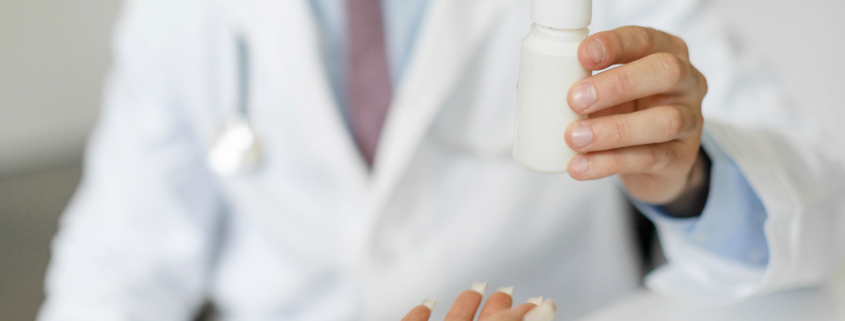Seven Day Rehab for Drugs & Alcohol
When it comes to overcoming addiction, one size does not fit all. For some people, a 7-day drug rehab program can offer an efficient and focused approach to jumpstart recovery. This short-term rehab option aims to address the most immediate needs, including detox and stabilization, making it ideal for individuals who need a brief but intensive intervention.
What Is a 7-Day Drug Rehab?
A 7-day drug rehab program is designed for people looking for a quick intervention to initiate recovery. Primarily focused on detoxification and stabilization, this program provides a structured environment with professional support for individuals dealing with mild to moderate addiction. If you are looking for a short term rehab for couples, contact us today.
Who Can Benefit from a 7-Day Rehab Program?
A 7-day rehab program is best suited for people:
- With busy schedules needing a brief rehab option
- Experiencing mild to moderate addiction
- Looking for detox support with a short recovery focus
- Wanting an intensive introduction to recovery before considering longer programs
Why Choose a 7-Day Rehab?
For individuals needing urgent help without the ability to commit to a long-term program, a 7-day rehab offers:
- Rapid stabilization and detox
- An introduction to therapeutic tools and techniques
- Flexibility for individuals with professional or personal obligations
- A gateway to longer-term outpatient programs if needed
Day-by-Day Breakdown of a 7-Day Rehab Program
Day 1: Initial Intake and Assessment
The first day is crucial for understanding the individual’s unique needs. A thorough intake and assessment are conducted to tailor the program to the person’s specific requirements, including a mental health evaluation.
Day 2: Detox Process Begins
With medical support, the detox process is initiated to start cleansing the body of harmful substances. Comfort measures and medications may be provided to ease withdrawal symptoms.
Day 3: Ongoing Detox and Initial Therapy
Detox continues with support, as clients start attending individual or group therapy sessions to explore underlying addiction triggers.
Day 4: Counseling and Behavioral Therapy Introduction
Day four focuses on introducing cognitive-behavioral therapy (CBT) or similar techniques to help individuals recognize negative thinking patterns and behaviors linked to substance use.
Day 5: Skills Building and Relapse Prevention
Clients learn essential coping skills and relapse prevention strategies to use once they complete the program, equipping them to handle real-world triggers.
Day 6: Preparing for Aftercare and Support Systems
Preparation for aftercare begins with a focus on setting up a support system and considering post-rehab options such as outpatient therapy.
Day 7: Discharge Planning and Transition
The final day is dedicated to discharge planning, ensuring the individual has a solid aftercare plan to continue their recovery journey.
Types of Therapy in a 7-Day Rehab Program
A range of therapeutic modalities is included:
- Individual Therapy: One-on-one sessions that allow a deeper dive into personal issues.
- Group Therapy: A chance to share experiences and gain support from others facing similar struggles.
- CBT: A highly effective form of therapy that helps modify negative thoughts and behaviors associated with addiction.
Detox and Medical Support
Medical detox is often required for those in the early stages of recovery. With 24/7 medical supervision, clients experience a safer detox process, with medication to reduce withdrawal symptoms.
Relapse Prevention Techniques
Preventing relapse is critical, especially with the short nature of a 7-day program. Strategies include:
- Identifying triggers and developing coping techniques
- Learning mindfulness practices to manage cravings
- Practicing stress-reduction methods
Benefits and Limitations of 7-Day Rehab
Benefits:
- Quick access to essential addiction treatment
- Reduced financial and time commitments
- Focused detox and early-stage treatment
Limitations:
- Short duration may not be enough for severe addictions
- Limited time to delve deeply into psychological issues
Cost of 7-Day Rehab Programs
The cost of a 7-day rehab can vary depending on the facility and location, but most programs fall between $2,000 and $10,000. Many facilities accept insurance, and some offer financial assistance.
How to Choose the Right 7-Day Rehab Center
When selecting a facility, consider:
- Accreditation and credentials of the center
- Experience and qualifications of the staff
- Reviews and success rates of the program
Aftercare Planning
Aftercare is crucial for sustaining recovery. Options may include:
- Outpatient therapy for ongoing support
- Sober living arrangements
- Participation in 12-step or other support groups
Success Rates and Effectiveness
While success rates for short-term programs vary, the commitment to follow-up care and aftercare greatly influences long-term outcomes. Studies suggest that individuals who continue with outpatient therapy or aftercare have higher chances of maintaining sobriety.
Alternatives to 7-Day Rehab
For those requiring more time, longer-term rehab programs (30, 60, or 90 days) might be more suitable. In certain cases, outpatient treatment can be a flexible option if a residential setting is not possible.
Conclusion
A 7-day rehab program provides a structured, effective way to initiate recovery for individuals needing rapid intervention. Although short, it offers the core essentials of detox and therapy, paving the way for longer-term treatment or outpatient support. Remember, taking the first step is often the hardest, but a supportive recovery journey can begin in just seven days.
FAQs
1. What can I expect in a 7-day rehab program?
A structured routine focusing on detox, therapy, and skill-building to prepare for long-term recovery.
2. Is 7-day rehab effective?
While limited, a 7-day program can initiate recovery, especially if followed by aftercare.
3. Can I detox alone at home instead of in rehab?
Medical detox in a rehab center is safer, as it includes professional monitoring and support for withdrawal symptoms.
4. How much does a 7-day rehab cost?
Costs vary but generally range between $2,000 and $10,000, with insurance often covering part of the expense.
5. What happens after the 7-day rehab is over?
Most individuals are referred to aftercare options like outpatient therapy or sober living to support ongoing recovery.
Here are some reliable .gov resources for substance abuse information, support, and treatment options. These government websites provide valuable information on prevention, treatment, recovery resources, and research:
- Substance Abuse and Mental Health Services Administration (SAMHSA)
SAMHSA.gov
SAMHSA offers extensive resources on mental health and substance abuse, including a behavioral health treatment locator, prevention programs, grants, and guidelines for individuals and families dealing with addiction. - National Institute on Drug Abuse (NIDA)
DrugAbuse.gov
NIDA provides scientific research, resources on addiction, statistics, and educational materials focused on the prevention and treatment of substance use disorders. - Centers for Disease Control and Prevention (CDC) – Substance Use
CDC.gov
The CDC provides information on the opioid epidemic, overdose prevention, and data on substance use trends. The site also includes guidelines for healthcare providers and resources for community initiatives. - National Institute on Alcohol Abuse and Alcoholism (NIAAA)
NIAAA.NIH.gov
NIAAA focuses specifically on alcohol use and abuse, offering data, research findings, and resources to help individuals and families understand and address alcohol addiction. - FindTreatment.gov
FindTreatment.gov
This website, managed by SAMHSA, helps people find mental health and substance use treatment facilities in their area, with details on program types, accepted insurance, and payment options. - Office of National Drug Control Policy (ONDCP)
WhiteHouse.gov
The ONDCP oversees national drug policy efforts, providing strategies, programs, and resources to combat drug abuse and support recovery efforts across the country. - MedlinePlus – Drug Abuse
MedlinePlus.gov
MedlinePlus, managed by the National Library of Medicine, offers a collection of resources on drug abuse, including treatment options, current research, and links to various government resources. - Veterans Affairs (VA) – Substance Use Treatment Programs
VA.gov
The VA offers substance use treatment specifically for veterans, including information on available programs, counseling services, and resources to support recovery for veterans. - National Institutes of Health (NIH) – Opioid Crisis
NIH.gov
The NIH HEAL (Helping to End Addiction Long-term) Initiative focuses on the opioid crisis, providing research updates, treatment innovations, and community resources for opioid addiction. - Centers for Medicare & Medicaid Services (CMS) – Behavioral Health Services
CMS.gov
CMS offers guidelines and resources for integrating behavioral health services, including substance use treatment, into Medicare and Medicaid-covered programs.
These government websites provide scientifically backed information and practical tools to help people understand, prevent, and address substance abuse effectively.






